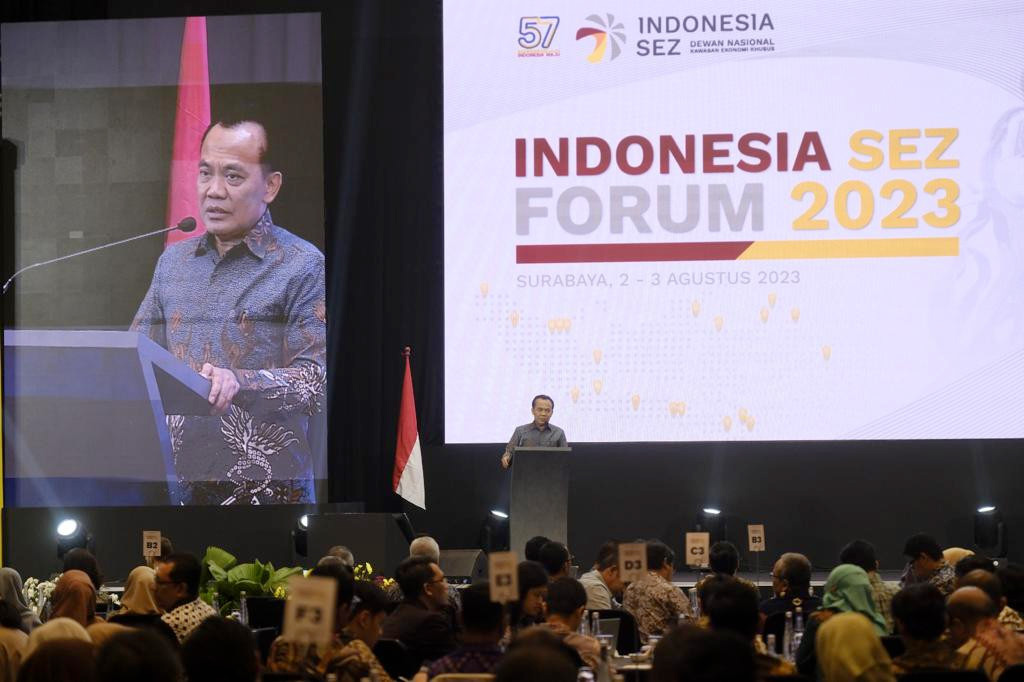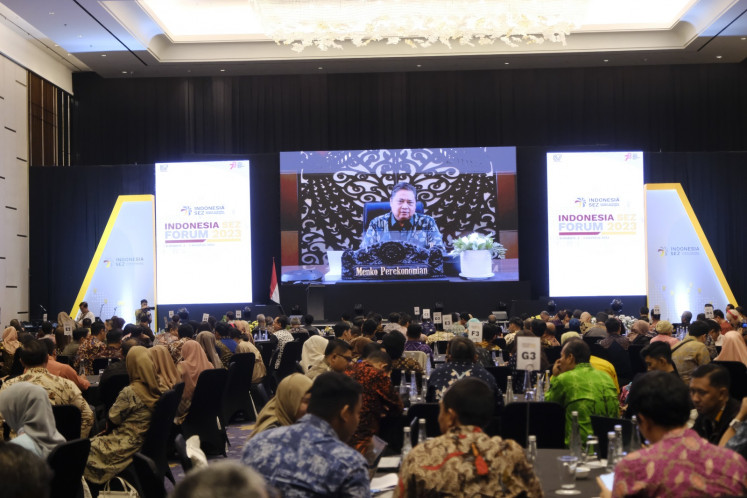
Article courtesy of the Jakarta Post.

Given the nature of Indonesia’s archipelagic geography and marine territory, foreign trade and investment is an integral part of the country’s economy. According to ASEAN Briefing, the government has homed in on the development of special economic zones (SEZ) as a priority policy, with an aim to attract over US$50 billion in foreign investment in the next decade.
As Indonesia’s economy grows steadily amid the ongoing global economic slowdown, the government is banking on investments to accelerate recovery through encouraging exports, suppressing imports by industrializing import substitutions, and enhancing the creation of new jobs. The development of SEZs is expected to boost investment flows into the country.
SEZs facilitate industrial activities, exports, imports and other activities with high economic value and international competitiveness, contributing to the revitalization of the nation’s economy. As of June 2023, realized investments across the country’s SEZs reached Rp 128.5 trillion (US$8.5 billion) through 291 businesses and the cumulative creation of new jobs for 71,349 people.
“With the issuance of Law No. 6/2023 on the enactment of the Job Creation Perpu [regulation in lieu of law], the government has carried out various policy transformations, one of which is through Special Economic Zones [as] a source of new economic growth in the regions,” Coordinating Minister for the Economy Airlangga Hartarto said in his virtual speech at the Special Economic Zone Forum 2023.
To ensure the broader success of SEZs, the government continues to provide fiscal and nonfiscal incentives, including tax holidays, tax allowances, ease of customs services and access to land and property.
Under its new policy, the government is also utilizing the opportunity for economic expansion beyond the island of Java, designating certain SEZs as targets of investments in industrial specializations to optimize nationwide growth.
For example, investments for palm oil processing will be directed to the Sei Mangkei SEZ in North Sumatra, bauxite processing investments to the Galang Batang SEZ in the Riau Islands, and investments for the creative and digital industries to the Nongsa Digital Park in the Nongsa SEZ, also in the Riau Islands.
Downstream in the processing industry efforts have meanwhile been undertaken in certain SEZs to contribute greater added value for the national economy. One of the SEZs growing its downstream industry is the Gresik SEZ in East Java, through a projected investment of Rp 45 trillion in cooperation with PT Freeport Indonesia Smelter.
“At present we know that there are 20 SEZs and two of them are in East Java, namely the Gresik SEZ and the Singhasari SEZ. We are very proud of the trust given and of course, we will partner very impressively with these SEZs [for] policy alignment,” said East Java Deputy Governor Emil Elistianto Dardak.

Susiwijono Moegiarso, secretary of the Office of the Coordinating Economic Affairs Minister who is currently serving as acting secretary-general of the National Council (Denas) for SEZs, emphasized the importance of optimizing SEZs’ performance by encouraging wider cooperation between various parties across all levels of government.
“Essentially, we hope that SEZs will truly become a source of new and inclusive economic growth. We will specifically encourage two SEZs in East Java and a total of 20 SEZs nationwide,” Susiwijono said.
“There are not as many [SEZs in Indonesia] as in other countries, but we will slowly encourage them, because SEZs have extraordinary fiscal incentives. These are among what we call the ultimate facility, the highest fiscal facilities [given],” he said.
